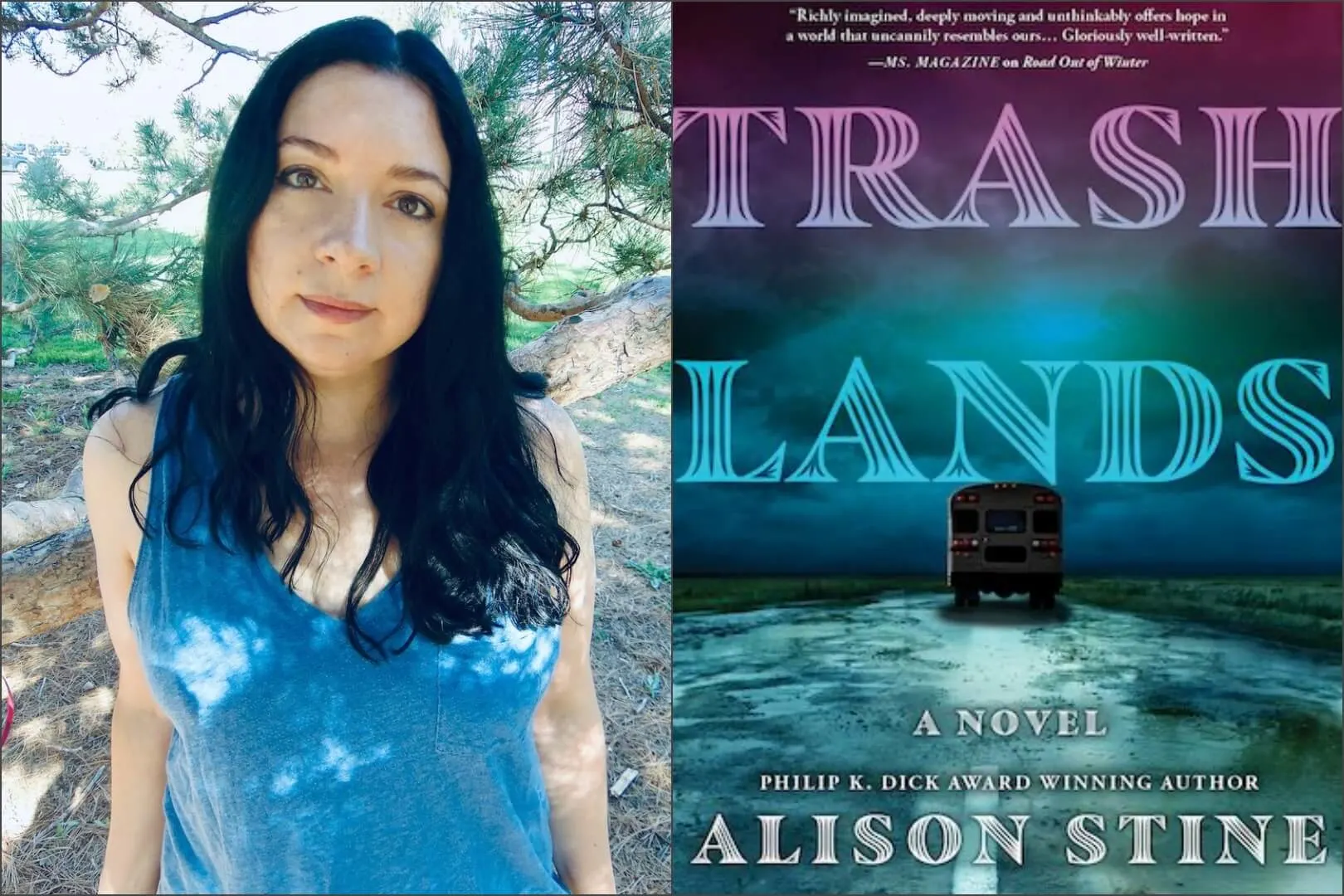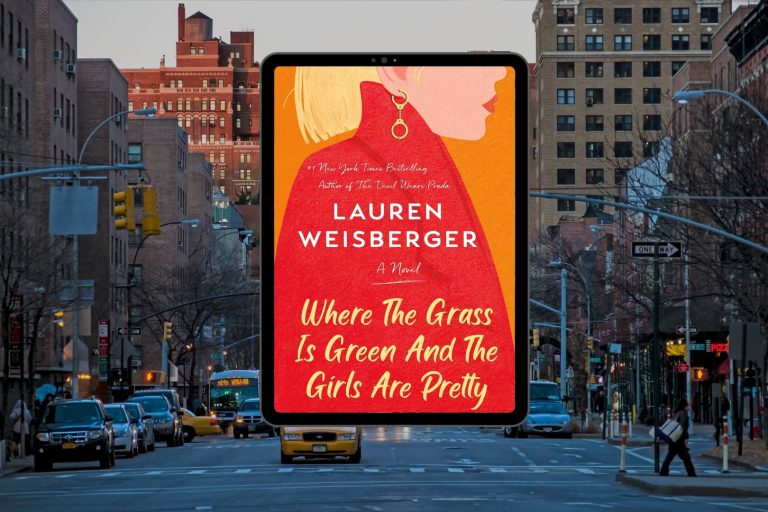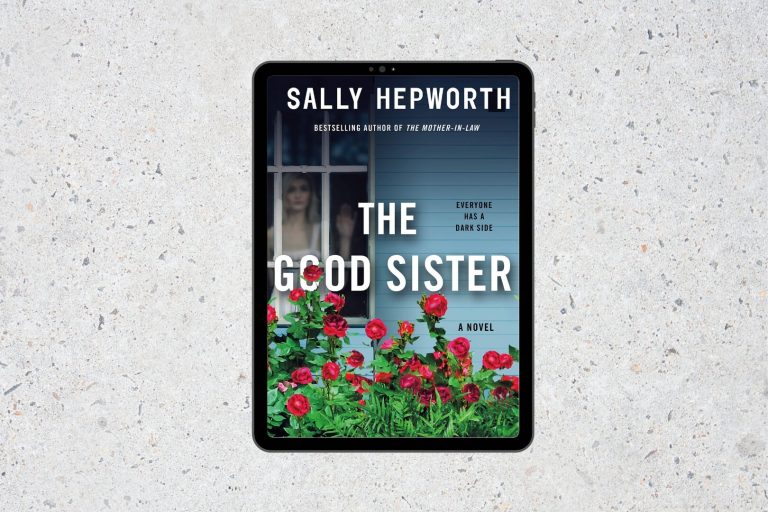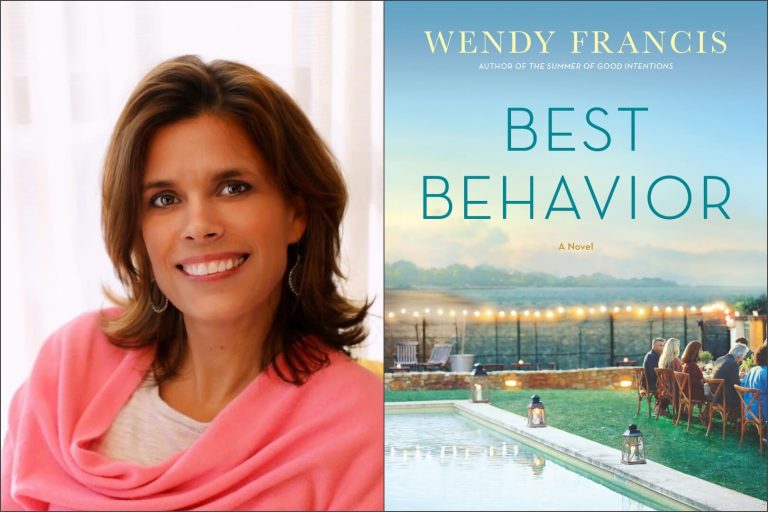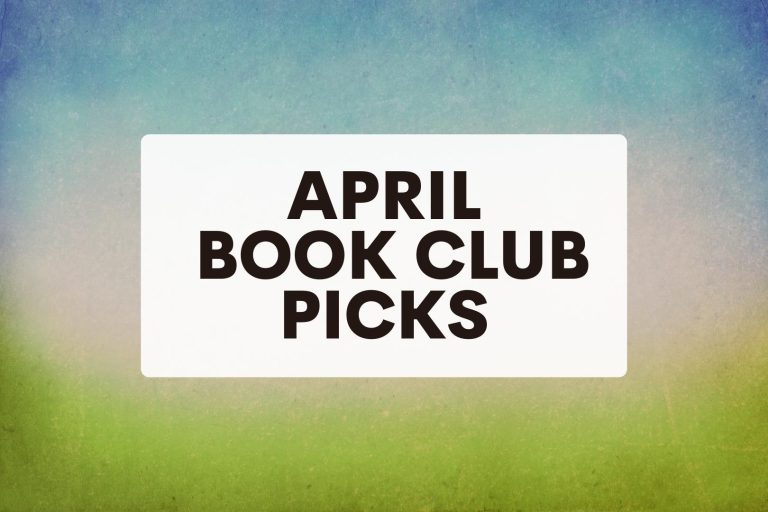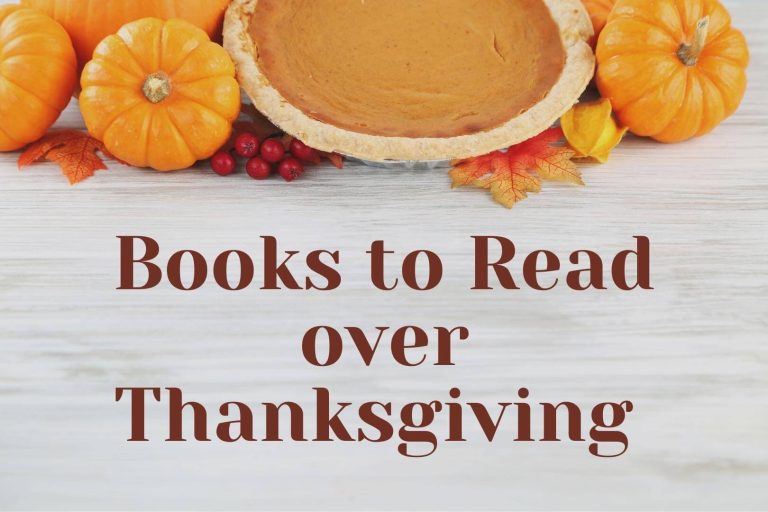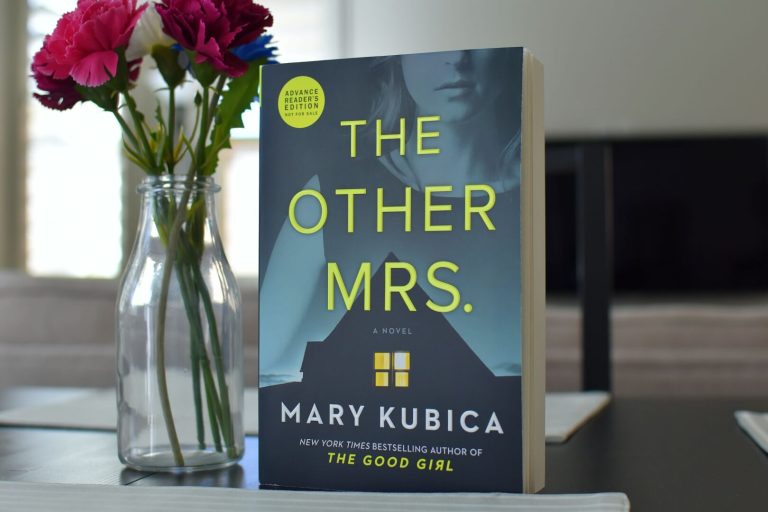Alison Stine is the author of Trashlands.
Alison Stine is an award-winning author of five books, including Ohio Violence. Her essays on poverty and the environment have appeared in such publications as the Atlantic and the Guardian. She lives in the foothills of rural Appalachia with her son.
Here’s the synopsis for Trashlands:
A few generations from now, the coastlines of the continent have been redrawn by floods and tides. Global powers have agreed to not produce any new plastics, and what is left has become valuable: garbage is currency.
In the region-wide junkyard that Appalachia has become, Coral is a “plucker,” pulling plastic from the rivers and woods. She’s stuck in Trashlands, a dump named for the strip club at its edge, where the local women dance for an endless loop of strangers and the club’s violent owner rules as unofficial mayor.
Amid the polluted landscape, Coral works desperately to save up enough to rescue her child from the recycling factories, where he is forced to work. In her stolen free hours, she does something that seems impossible in this place: Coral makes art.
When a reporter from a struggling city on the coast arrives in Trashlands, Coral is presented with an opportunity to change her life. But is it possible to choose a future for herself?
Told in shifting perspectives, Trashlands is a beautifully drawn and wildly imaginative tale of a parent’s journey, a story of community and humanity in a changed world.
Let’s get to know Alison as she talks favorite novels, inspiration behind Trashlands, key takeaways and more!
What are some of your favorite novels?
I love Tana French. She’s the biggest influence on me in recent years, and I buy everything she publishes the day it comes out, if not before! My favorites of her books are The Likeness and The Secret Place. Earlier in my writing life, I read all of Angela Carter, and especially loved her novel Nights at the Circus. Parable of the Sower and Kindred by Octavia Butler are other longtime favorites, as is The Secret History by Donna Tartt.
When did you know you wanted to become an author?
I’ve told stories for as long as I can remember. I learned to read before I started school, and my grandmother, who always wanted to go to college but was never able to, bought me a “blank book” from the drugstore to write my stories down when I was about four years-old. I don’t think I realized I could be a writer for a job, though, until I was a teenager and read LM Montgomery’s Anne of Green Gables, whose main character is a writer and ends up winning a writing contest sponsored by a baking company when her friend enters her story. That was the first time it occurred me that I could do this all the time, and support myself by writing (though Anne only wins $25 and is mortified by her friend’s insertion of the company’s brand name…).
What inspired you to write Trashlands?
Like all good stories, Trashlands came to me in a dream. I’m a single mom, and the few weeks out of the year I spend away from my son, I try to go somewhere, if I can afford it, and just write. I had one of those rare, childfree weeks and I was spending it in an old school bus parked by a river. I couldn’t sleep, and dreamed about a woman named Coral. I knew she was a young mom and had red hair and lived in a school bus with her partner. I knew her son was missing, somehow. I knew she wanted to be an artist, but couldn’t. The world she lived in didn’t support that, or there wasn’t time or a place for art in her world. And then the book fell into place around her. The world was our world, but after it had been changed forever by hundred-year floods. And the world was full of plastic.
When writing a dystopian novel, what are key elements that must be included?
I think every book is different. You have to write the story as it calls to you. With Trashlands, it was important to me to write about what people do for work, which includes salvaging plastic, making medicine, even dancing at a strip club. It was important for me to figure out what people would eat, what they would aspire to, what their pasts were like—what they had survived. But these are questions you have to answer with every book. I think the most important thing is to be true to the story, not the genre, which is kind of a slippery concept anyway.
What do you hope are some of the key takeaways and lessons from the novel?
I’ve lived below the poverty line since my son was born and my husband at the time left. People have an idea of single mothers and of people experiencing poverty in general: that we don’t work hard, that we somehow deserve it. The opposite is true. Poor people are the hardest working people I know. Most of us work multiple jobs–which is the case in Trashlands–while caring for our kids alone and holding down a household. Like this novel, the fiction that I write is imaginative, but it’s grounded in the reality of what I’ve lived. Although Trashlands is definitely fiction, I hope it might help people think more critically about how we treat mothers and people living in poverty. And I hope readers maybe think a bit before purchasing another plastic item that will likely end up in a river somewhere in the future…
What are you currently reading and what’s on your TBR (to be read) list?
Right now, I’m reading an advanced copy of Township by Jamie Lyn Spears, a collection of short stories to be published in December. On my TBR pile is Alix Harrow’s The Once and Future Witches, the thriller Fan Club by Erin Mayer, and Horseman by Christine Henry, a kind of re-imagining of the Legend of Sleepy Hollow. I like books that are more than just a little scary, especially during spooky season!
Click here to order Trashlands on Amazon.
